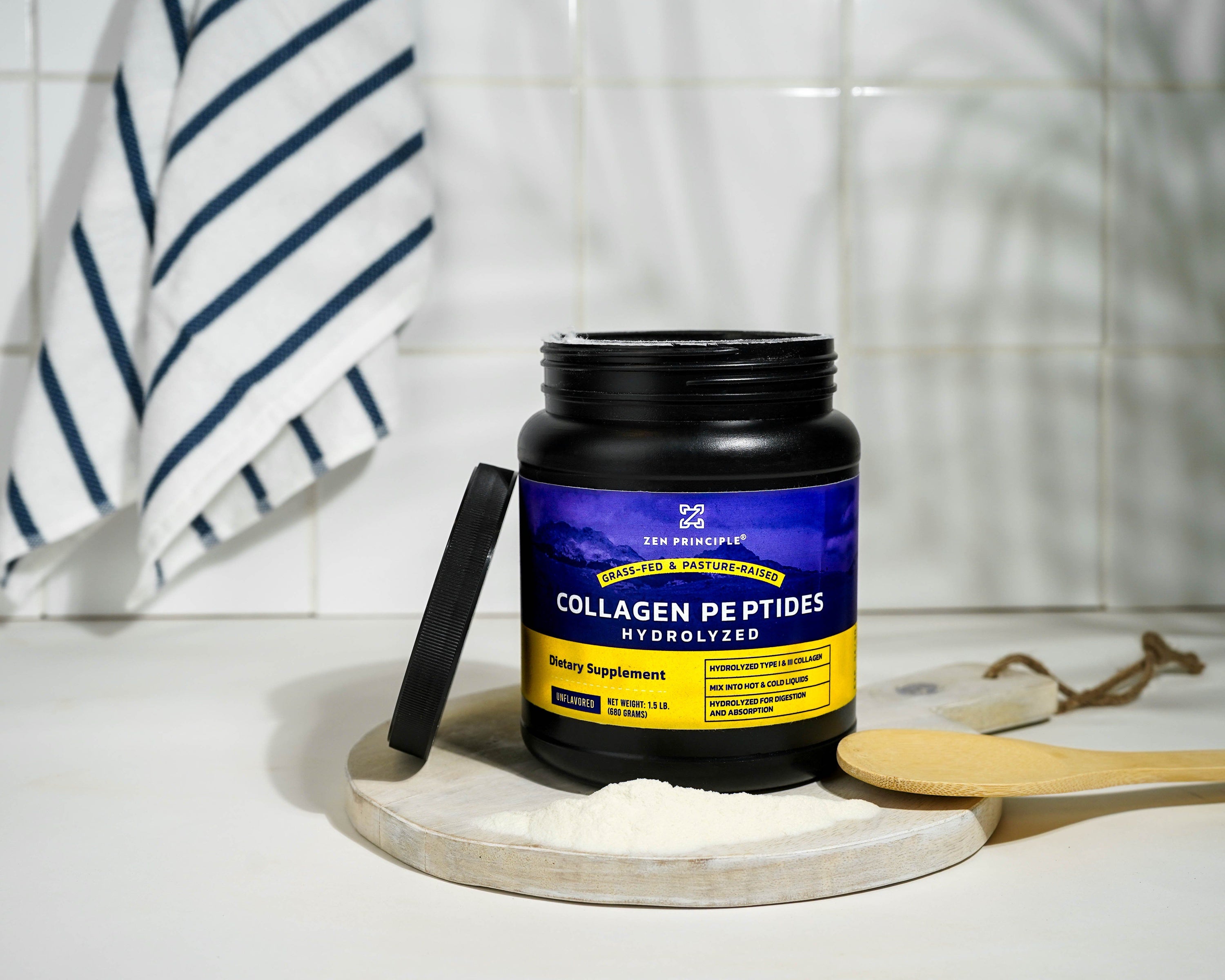You know that collagen ranks high on the list of dietary supplements that supercharges your overall health and wellness. Plus, most collagen supplements come in an unflavored, powdered form that’s easy to blend into almost everything.
For instance, a scoop goes well with your morning coffee, while another scoop in your afternoon smoothie helps you get the most out of the workout you’ve just ended. You can even blend it into your banana bread and brownies for a healthy protein boost. As you can see, the culinary possibilities with collagen powder are endless.
But that’s where the problem lies — you may be going overboard with your collagen. We’ll reveal the recommended dosage for this functional protein and what you should know if you’re indeed overeating the good stuff.
Why Collagen Supplements Are Useful Add-ons to Your Diet
Collagen is one of the most important proteins, given that it accounts for 25-30% of your total protein content. From your skin and teeth to your gut, ligaments, and muscles, collagen benefits you from the inside out.
While your body naturally makes collagen from birth, research has shown that its ability to synthesize this major protein starts decreasing when you’re 18-29 years old. Collagen loss even occurs at 1% per year after you’ve hit 40 years old. Fast-forward to another 40 years later, your body only retains 25% of its collagen-producing capabilities.
As such, collagen degradation is one of the main reasons your joints ache, your skin sags, and you experience many other age-related health issues.
Thankfully, you can support your body’s collagen stores with collagen supplements. Usually, these supplements come in hydrolyzed collagen peptides (for easy digestibility) and gelatin (to enhance the texture of your dishes). But as with everything in life, collagen supplementation can run the risk of “too much of a good thing.”
Can You Take Too Much Collagen?
The thing is, yes, you can take too much collagen. In fact, the scientific literature recommends 2.5-15 grams of collagen peptides daily. Staying within this range ensures you remain within the “optimal dietary balance of dispensable and indispensable amino acids,” which comprises 36% of collagen peptides and 64% of mixed proteins (from the average diet in America).
It’s also good practice to follow the dosage guidelines on the collagen supplement’s packaging, as the actual collagen content per serving can vary from brand to brand and product to product. For instance, at Zen Principle, we typically recommend two scoops daily for our Beef Collagen Peptides Powder and Marine Collagen Peptides Powder, and 1.5 scoops daily for our Beef Gelatin Powder.
Should You Worry if You Consume Too Much Collagen?
At times, it’s possible that in your haste to achieve smooth, glowing skin or pain-free joints, you may go over the top with your collagen consumption. Or perhaps you eat lots of collagen-rich foods, like bone broths and gelatin-based desserts, on top of your daily collagen supplement.
Here’s what you need to know: collagen is generally safe and non-toxic, especially since your body already makes its own (albeit in smaller amounts as you age). What’s more, dietary collagen sources may not contain significant amounts of collagen peptides compared to collagen supplements.
You should also note that not all the collagen you put in your mouth is absorbed by your body. To illustrate, a 2019 study in the Journal of Agricultural and Food Chemistry compared the collagen content in a Japanese dish and in the human body after consumption. While the collagen-rich cooked shark meat dish raised the serum collagen levels of participants, the study noted that only about 30% of the dish’s collagen content was ultimately absorbed by the body.
So, if you had accidentally over-consumed collagen for some reason, rest assured that it’s probably not going to cause any serious side effects. That said, if you want to consume more than the recommended dosage for a specific health or fitness reason, it’s always best to consult your primary doctor or dietitian before doing so.
Other Things To Note About Collagen Consumption
Although rare, keep in mind that collagen allergies do exist. In fact, there is documented evidence for allergic reactions to fish collagen and beef collagen.
If you have a sensitive stomach, you may also experience mild digestive discomfort, like bloating or an upset stomach, after supplementing with collagen. You can downplay the odds of digestion problems by choosing a hydrolyzed collagen peptide supplement, which breaks down more easily than gelatin inside your body. Also, a short, clean ingredient list purely consisting of collagen (sans the fillers and additives) is less likely to give you gastrointestinal upset.
P.S. If you'd like to discover the other side of the coin, check out our post on “What happens when you stop taking collagen?”






2 comments
Hi Thomas,
Thank you for your insightful question regarding collagen dosage and age-related decline. You’re absolutely right to consider individual needs.
While general recommendations often suggest two scoops daily, factors like age, activity level, and overall health can influence optimal collagen absorption and utilization. Given that collagen production naturally decreases as we age, a standardized dosage might not be universally appropriate. Therefore, we strongly suggest consulting with a healthcare professional who can assess your specific situation and advise on the most suitable collagen intake for you. They can provide personalized guidance, ensuring you achieve the best possible results.
We appreciate your understanding and are here to support you in making informed decisions about your health.
If collagen making in the body declines with age, shouldn’t dosage recommendations reflect that instead of saying two scoops a day for everyone?